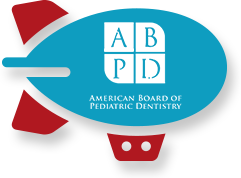Some “Health” Food can Cause a Catastrophe for Teeth
November 9th, 2017
Whether it’s snacking on granola bars, or choosing fruit instead of potato chips, there are endless dietary actions that you can take to improve your child’s health. But, before you overhaul their diet, did you know that some foods that are marketed as healthy are actually terrible for teeth? When shopping for your child, watch out for some stealthy unhealthy food.
Granola
Granola is typically advertised as a healthier alternative to cereal that people can add into their milk or yogurt for an added dietary benefit. But here’s what they’re not advertising: granola typically contains high amounts of sugar and fat, which we call “sugar bombs.” The added sugar can lead to tooth decay, and the high density of calories can leave your child hungry and cause them to overeat.
If you do choose granola, compare the nutritional values of your options and choose the one with the highest fiber content, and lowest amount of sugar. This way, you can avoid feeding your child a stealthy sugar bomb.
“Nutritional” Water & Sports Drinks
Often marketed as a healthy way to recover from a workout, nutritional or “enhanced” water is not good for you at all. In fact, one 20-ounce bottle of Vitamin Water contains more sugar than the recommended daily amount for adults. Nutritional water may taste good, but there’s simply too much sugar in them to be considered healthy. Our advice is to serve your child normal water, which contains no calories or sugar.
Sports drinks are no better, but usually advertised as healthy drinks. This is patently false, since the most popular sports drinks contains as much sugar as a can of cola. The healthiest beverage you can give your child is water, which also happens to naturally clean teeth.
Trail Mix
A fantastic substitute for unhealthy snack foods is trail mix. But, be careful! If you decide to serve your child trail mix, look out for unhealthy ingredients that can add unhealthy amounts of sugar and fat to their plate. Try to avoid trail mix that has chocolate, dried fruit, and candy. Look for mixes that are unflavored and don’t contain any added sweets.
Dried Fruit
 Dried fruit is a food that you should avoid if you’re trying to improve your child’s oral health. Dried fruit contains much higher levels of sugar than their natural counterparts, and none of the water that helps make fruit so healthy. Let’s use prunes as an example. Prunes are just dried plums, except just one cup of prunes contains more than 400 calories and 45 grams of sugar. However, one plum contains just 75 calories and 16 grams of sugar. The bottom line is that you should choose fresh fruit and not dried fruit.
Dried fruit is a food that you should avoid if you’re trying to improve your child’s oral health. Dried fruit contains much higher levels of sugar than their natural counterparts, and none of the water that helps make fruit so healthy. Let’s use prunes as an example. Prunes are just dried plums, except just one cup of prunes contains more than 400 calories and 45 grams of sugar. However, one plum contains just 75 calories and 16 grams of sugar. The bottom line is that you should choose fresh fruit and not dried fruit.
Smoothies

Smoothies can be a fantastic way to get the nutritional benefits of fruit, and the added mouth-healthy rewards of non-fat Greek yogurt. However, if made improperly, smoothies can be packed with sugar and calories. When making (or buying) a smoothie, make sure to limit using fruit high in sugar. Try to avoid figs, grapes, mangoes, pomegranates and cherries, since these fruits have very high amounts of sugar.
Does Your Child Have a Healthy Diet?
Our office helps parents teach their children about earning a healthy smile, and keeping it long after they leave our office. A mouth-healthy diet is an important part of maintaining optimal oral health. If you’re concerned about how your child’s diet may be affecting their teeth, then bring them into our office. We will evaluate their smiles and offer a variety of treatment options that fit their case. We can also give you tips on eating for better oral health, and point out food that can lead to tooth decay.






